Pioneer New England Legal Foundation and Sullivan & Worcester Sue Boston Over Retaliatory Tax Scheme
Class action challenges city’s unlawful penalties against commercial taxpayers who exercised their right to appeal; seeks court intervention to end this retaliatory scheme in next fiscal year
BOSTON, MA — Pioneer New England Legal Foundation (the Legal Foundation) and Sullivan & Worcester LLP today filed on behalf of their client 148 State Street a class action lawsuit against the City of Boston, alleging that the Assessor’s Office has illegally retaliated against commercial taxpayers for exercising their constitutional right to appeal property tax assessments before the Appellate Tax Board (ATB) since 2024.
“This case is about the rule of law,” said Frank J. Bailey, President of Pioneer New England Legal Foundation and a former federal judge. “Boston’s Assessor’s Office has decided that when citizens exercise their right to appeal an unjust tax, they deserve to be punished. That is not how a lawful government behaves. Both our federal and state constitutions give citizens a right to petition the government, including unfettered access to the courts. Boston has made commercial landowners pay a heavy price for exercising that right.”
The lawsuit, which was filed today in Suffolk Superior Court, seeks to prohibit the city from retaliating against taxpayers who appeal their assessments, to declare the city’s policy unlawful, and to order repayment of excess taxes collected for fiscal years 2024 and 2025.
The named plaintiff in this class action is the owner of 148 State Street which represents all commercial property owners, large and small, that have been victimized by this unlawful scheme.
City’s Conduct and Legal Violations
According to the complaint, the City of Boston’s Assessor’s Office deliberately and systematically violated state and federal law by overriding its own determinations of fair market value for taxpayers who filed appeals.
Even when the assessors agreed that a property’s value had declined (e.g. from $120 million to $100 million) it allegedly overrode the CAMS software system and added back value under a “discretionary adjustment” box. In FY2024, those adjustments were labeled “ATB Appeal” or “ATB Dispute.” In FY2025, the labels disappeared, but the practice seemingly continued: roughly half the decline in value was added back to every appealed property. The pattern produced a consistent penalty ratio across the board but the scheme was hidden from taxpayers because it was not visible on the tax bills that the city issued.
The impact was clear and unlawful: commercial taxpayers who appealed their assessments were charged higher taxes than comparable properties that did not appeal. The lawsuit states that the City of Boston thereby violated the very laws that govern assessors’ duties and the constitutional rights of citizens who petition their government for relief.
The lawsuit asserts four independent legal violations by the city:
- It breached Massachusetts General Laws Chapter 59, Section 2A(a) by failing to determine “fair cash value” as required;
- It violated the First Amendment of the U.S. Constitution by penalizing taxpayers for exercising their right to petition;
- It violated Articles XI and XVI of the Massachusetts Constitution by denying free access to the courts;
- And, it violated Amendment Article CXII of the Massachusetts Constitution, which requires that all property within a class be taxed proportionally and equally.
“At a time when commercial properties are declining in value after the pandemic, property owners are already facing challenging times,” said Patrick P. Dinardo of Sullivan & Worcester. “For Boston to further penalize property owners in an apparent effort to intimidate them from seeking review at the ATB is unconscionable. It discourages investment in the city which hurts every Boston citizen.”
Why a Class Action
The lawsuit seeks class certification because the city’s unlawful practice applies uniformly to affected taxpayers. Virtually all commercial property owners who appealed to the ATB in prior years saw a comparable “discretionary add-back” applied to their FY2024 or FY2025 assessments. A class action allows the court to decide one central question—whether the city may retaliate against taxpayers for appealing—without forcing hundreds of nearly identical lawsuits through the system.
The Legal Foundation began its investigation earlier this year and gave written notice to the city and the Department of Revenue at least three times since June. The Legal Foundation’s research at City Hall uncovered dozens of examples of the retaliatory tax scheme. After the city failed to offer any meaningful response on how to remedy the impact of its assessment practices, 148 State Street and the class of affected owners were left with no choice but to resort to litigation.
“The sooner the city steps up and addresses its unlawful practices, the better for the city and for every taxpayer who plays by the rules,” added Bailey.
About Pioneer New England Legal Foundation
Pioneer New England Legal Foundation is a public-interest law firm that defends and promotes educational options, accountable government and economic opportunity across the Northeast and around the country. Through legal action and public education, the Legal Foundation works to preserve and enhance liberties grounded in the constitutions and civil rights laws of the United States and the individual New England states.
About Sullivan & Worcester LLP
Sullivan & Worcester (Sullivan) is a global, mid-sized law firm with lawyers in Boston, London, New York, Tel Aviv and Washington, D.C. Sullivan’s clients, including Fortune 500 companies, leading financial services firms and asset managers, boards of directors, real estate companies, and emerging businesses, rely on Sullivan’s ability to navigate complex legal and operational landscapes, the impeccable judgment of its lawyers, and its commitment to best in class client service.
Media Contacts:
Amie O’Hearn, Communications Director
Pioneer New England Legal Foundation
aohearn@pioneerinstitute.org
Charlie Chieppo, Senior Media Fellow
Pioneer Institute
cchieppo@pioneerinstitute.org
617-548-7146
Lucinda Ellison
newsPRos
lucinda@newspros.com
610-574-9035





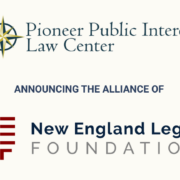

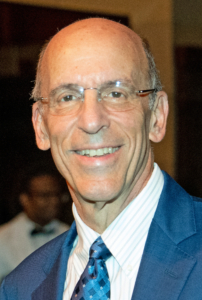 Since retiring in 2019 after 37 years of government service in Massachusetts, Kurt Schwartz has consulted with government agencies, corporations, and non-profits in the areas of emergency management, homeland security, crisis leadership, and COVID-19 preparedness and operations. He also serves on the National Boards of American Friends of Magen David Adom, IsraAID-US, American Friends of Herut, and is a Director of Charm Sciences, Inc.
Since retiring in 2019 after 37 years of government service in Massachusetts, Kurt Schwartz has consulted with government agencies, corporations, and non-profits in the areas of emergency management, homeland security, crisis leadership, and COVID-19 preparedness and operations. He also serves on the National Boards of American Friends of Magen David Adom, IsraAID-US, American Friends of Herut, and is a Director of Charm Sciences, Inc.  Joel Carpenter is a partner at Sullivan & Worcester, where he served as co-managing partner for many years. Joel is particularly experienced in the tax structuring of complex business and investment arrangements using partnerships, limited liability companies, and Subchapter S corporations. He advises a broad range of private and institutional investors, including real estate investment firms, on a wide variety of U.S. federal income tax matters. This includes fund formation matters, the acquisition and disposition of property, structuring debt and equity investments, equity compensation plans, and tax planning for investors.
Joel Carpenter is a partner at Sullivan & Worcester, where he served as co-managing partner for many years. Joel is particularly experienced in the tax structuring of complex business and investment arrangements using partnerships, limited liability companies, and Subchapter S corporations. He advises a broad range of private and institutional investors, including real estate investment firms, on a wide variety of U.S. federal income tax matters. This includes fund formation matters, the acquisition and disposition of property, structuring debt and equity investments, equity compensation plans, and tax planning for investors.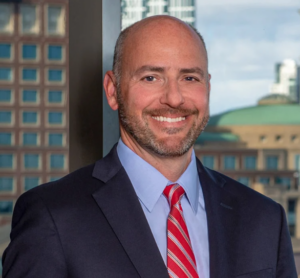 Andrew Lelling is a former United States Attorney and senior Department of Justice (DOJ) official with deep experience in white collar, securities, and international enforcement matters. He defends companies and individuals in complex civil litigation and government investigations. He also leads internal investigations and advises on compliance with federal, state, and international laws. He has successfully tried dozens of cases in federal and state courts.
Andrew Lelling is a former United States Attorney and senior Department of Justice (DOJ) official with deep experience in white collar, securities, and international enforcement matters. He defends companies and individuals in complex civil litigation and government investigations. He also leads internal investigations and advises on compliance with federal, state, and international laws. He has successfully tried dozens of cases in federal and state courts.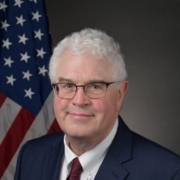

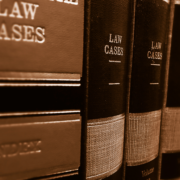
 Jonathan Albano, a partner with Morgan Lewis and a member of the board for Pioneer Public Interest Law Center, has been honored with a Lifetime Achievement award as part of law.com’s
Jonathan Albano, a partner with Morgan Lewis and a member of the board for Pioneer Public Interest Law Center, has been honored with a Lifetime Achievement award as part of law.com’s